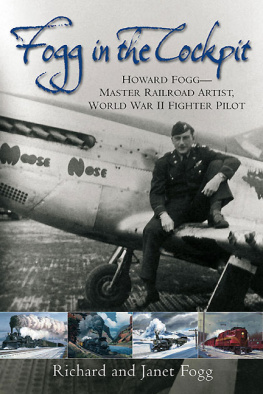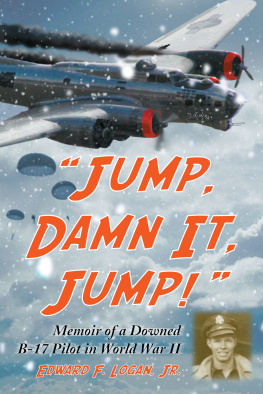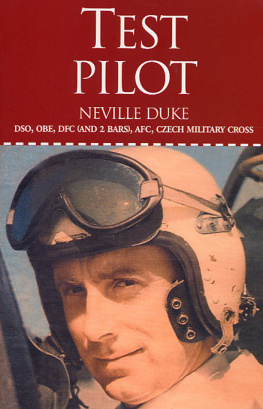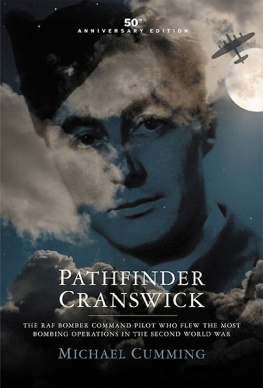M y acknowledgements and thanks go firstly to Jim Wright whose excellent publication On Wings of War (A History of 166 Squadron) was of enormous assistance to me. My thanks also to Anne and David Lee, and to Ron Hales and Peter Turley, the two air gunners in my crew, for their vigilance during our many excursions, and for their continuing friendship and cheerfulness. I must also thank the other members of my crew who are no longer with us George Lee, Nobby Clarke, Ray Forbes and Max Leversha for their loyalty, trustworthiness and dedicated contributions to our many safe returns.
My wife, Daphne, has my deep love and thanks for her understanding of the hours (years ?) spent compiling this work, and her forbearance on the masses of papers which for so long littered our rooms.
Finally, in view of the headings to some of the chapters in this book, my apologies to all exponents of latin, and my thanks to those having a gsoh.
Preface
T his book is about the lives of airmen who flew in World War II and, particularly, about the aircrews of Bomber Command as they embarked in complete darkness on their terrifying nightly missions over Germany in 1944 and 1945.
When war was declared in September 1939, the author, Don Feesey, was only sixteen and was studying for a career in The Civil Service. Two years later he volunteered for RAF service as a pilot. Having experienced the German air raids on London in 1940 he felt it his duty to train as a fighter pilot to defend his country. He had no wish to kill German civilians or to destroy their cities by bombing them. The RAF, however, assigned him not to the defensive role he sought, but to an attacking one in Bomber Command.
In all, he made thirty-four successful, long distance sorties over Germany in a four-engined Lancaster bomber. In 1944/45 the aircrews of Bomber Command operated almost entirely on dark nights, usually in dense cloud with no visual navigation to guide them. They were, indeed, the fly by nights.
Few raids were without incident, and in the course of his tour of operations the author lost quite a number of his squadron colleagues, and he saw several aircraft around him blown to pieces or spiralling to their doom.
Here, he describes not only the fears, excitement and tragedies of his crew and others, but also the less well-known months of intensive classroom training, tests and examinations they underwent before qualifying for their wings.
The RAF motto Per Ardua Ad Astra (By Hard Work to the Stars) seemed to the trainee aircrews to be Per Ardua Ad Infinitum! It was quite an achievement just to survive training. Thereafter, survival was largely a matter of luck.
CHAPTER ONE
Per Ardua Ad Domesticus
F LY-BY-NIGHTS describes those who indulge in despicable vanishing acts known as Moonlighting. This book, however, is about RAF Bomber Command fly-by-nights the aircrews whose bravery and courage were put to the test in 1944/45, usually when there was no moon at all.
Somewhat reluctantly, I became one of those. I wanted to be a fighter pilot. But it was not to be.
I came into this world four years after the end of the First World War (1914-1918) and, as a child, those wartime years seemed to me to be ancient history. I had a happy childhood both at home and at school, with many friends, but without any interest in politics, foreign affairs or wars. It was not until late in 1938 (when I was 15) that I began to realise that someone called Hitler could possibly involve Britain, and myself, in a war.
Towards the end of August 1939, I went on holiday to Ilfracombe with my parents and my brother. It was glorious weather and wonderfully peaceful. We swam in the sea and sunbathed, but as we lay on the rocks reading our newspapers we found them full of reports of German tanks and infantry threatening Poland. With Britain committed to assisting Poland in the event of enemy attacks, British preparations for war had already begun. Gas masks had been issued to everyone, and civil defence measures put into operation.
Prime Minister Neville Chamberlain had averted war a year earlier when he had met Hitler in Munich in an attempt to negate Germanys policy of lebensraum (annexation of neighbouring countries). On his return to London he held up a piece of paper for the waiting newsmen to see, declaring that it bore Herr Hitlers signature for Peace In Our Time. This became known as an act of appeasement.
Germany invaded Poland on 1 September 1939. It was clear that Hitler intended to grab the whole of Europe bit by bit. In 1938 he had taken over Austria, without bloodshed, claiming that he was uniting the German races (known as the Anschluss ), and then he prepared to take over the Sudetenland (part of Czechoslovakia). To avoid bloodshed, President Haka of Czechoslovakia signed over the whole of his country to the Germans shortly after relinquishing the Sudetenland.
On the invasion of Poland, an ultimatum was sent to Germany from Britain stating that unless an undertaking was received by 11 am on Sunday 3 September for the withdrawal from Poland, a state of war would exist with Britain. By 11 am on that day, radios all over the country were turned on as the nation waited for an announcement from Mr Chamberlain. He announced that no undertaking had been received and so from that moment we were at war with Germany. France declared war a little later the same day and from that time the two countries were jointly the Allies.
I was exactly two months short of my 17th birthday.
At the end of the Prime Ministers announcement we sat silently for a few moments in shock while we all assessed what it would mean to us. Having been issued with gas masks, we had a fear of gas attacks so insulating the house against gas penetration seemed a priority. We would also have to find the safest part of the house to avoid bomb blast during air raids.
But within a few minutes of Mr Chamberlains speech, the air raid sirens began their terrifying, fluctuating wail. Stomachs tautened through fear. Fleets of German planes could soon be dropping bombs or gas on London. We had decided that our long L-shaped hall would be the safest part of the house and, on hearing the sirens, my mother, in a panic I had never expected of her, rushed up the stairs and threw down a thick double mattress. My brother and I held it over the front door, while our father banged very long nails through it to fix it to the lintel. The air raid warning lasted about 20 minutes, and turned out to be a false alarm due to misidentification of a British aircraft. But it was enough to make the nation realize that a war had begun.

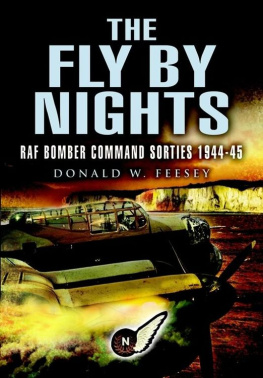
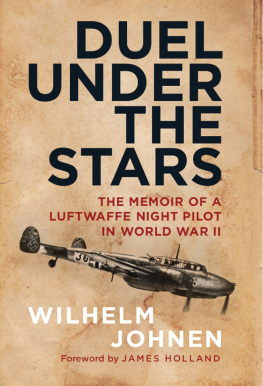

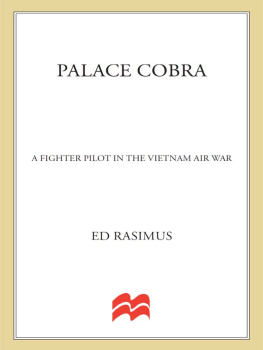
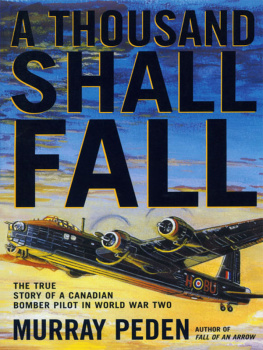
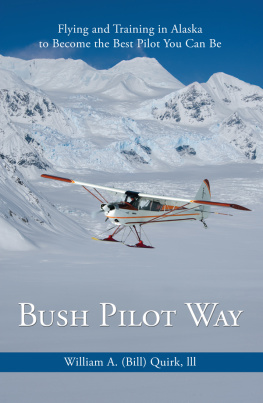
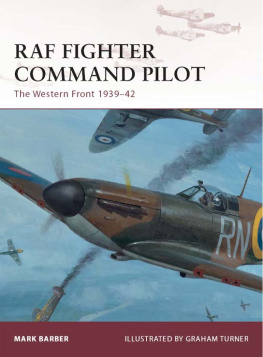
![Bar Wing Commander Guy P. Gibson VC DSO - Enemy Coast Ahead [Illustrated Edition]](/uploads/posts/book/180257/thumbs/bar-wing-commander-guy-p-gibson-vc-dso-enemy.jpg)
